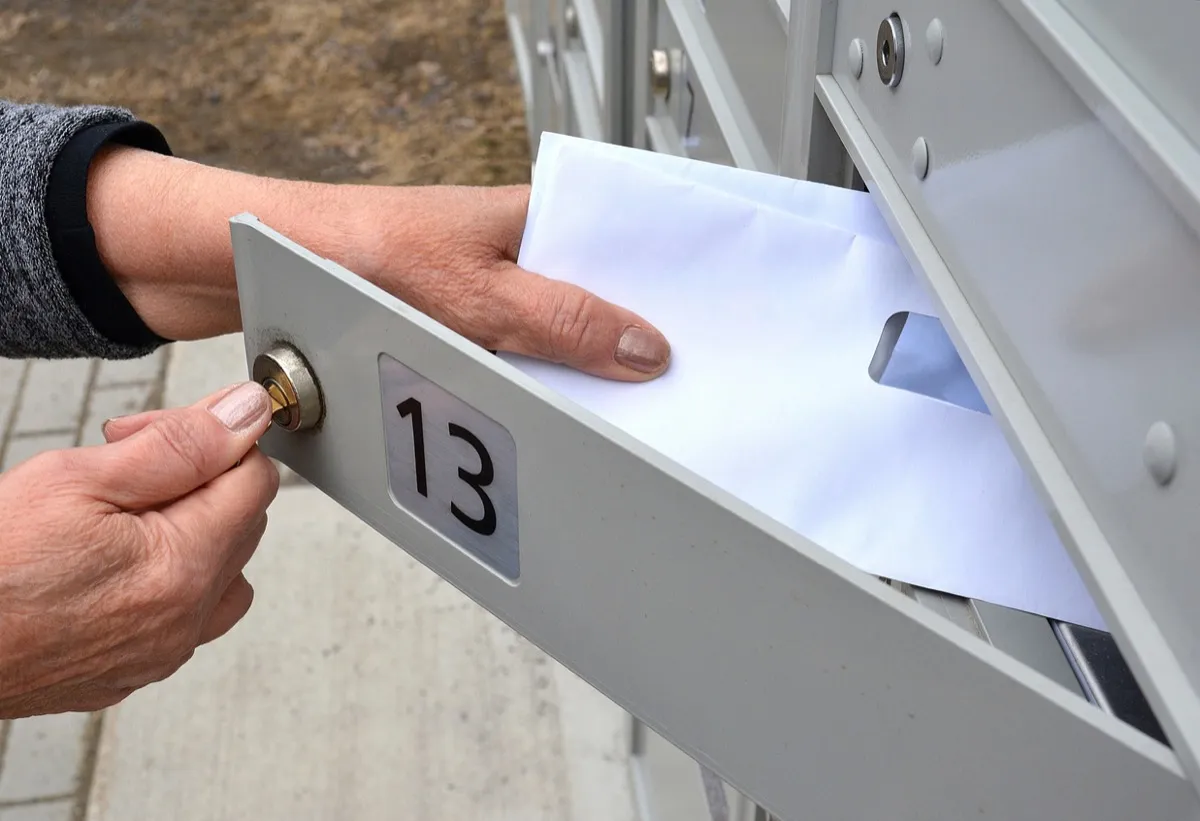7 Red Flags Your Partner Is Lying About Their Finances

Trust is the foundation of any relationship, coloring just about every interaction between couples. Break trust in one area of your partnership, and the rest can quickly come crumbling down. That’s why, if your partner is lying about their finances, the problem isn’t solely about the money itself—though that can certainly wreak havoc on your life. It can also indicate deeper issues in the relationship, and signal that things are rockier than you realize. Wondering how to spot the signs that your partner is lying to you about money? Read on for seven key insights from financial pros and relationship experts.
RELATED: 5 Ways to Avoid Fighting About Money With Your Partner, Therapists Say.
1
They avoid discussing money.

Being able to communicate openly and honestly is a crucial part of any relationship, and financial discussions are no different. If you notice that your partner clams up or changes the subject when it comes to money, this may be a sign they’re hiding something.
“When a partner consistently dodges financial discussions or becomes noticeably uncomfortable when the topic arises, there’s often more beneath the surface,” says Keith Donovan, a financial expert, startup advisor, and founder of Startup Stumbles.
Meghan Freed, a relationship expert, divorce attorney, and partner at Freed Marcroft, says you should pay attention to how willingly your partner collaborates with you on financial planning or decision-making. “Refusal to engage in these discussions may indicate a lack of financial responsibility or honesty. Down the line, this can lead to serious relationship issues, including divorce,” she tells Best Life.
RELATED: 5 Nervous Habits That Mean Someone Is Lying, According to Therapists.
2
Their story keeps changing.

If your partner is open to discussing finances but their narrative seems to change often, this can be another sign of dishonesty about finances. In particular, Freed suggests looking out for conflicting explanations about financial status or spending habits: “These inconsistencies may suggest deception or financial irresponsibility, calling their honesty and reliability into question.”
3
They overcompensate with lavish gifts.

Flashy gifts would seem to indicate that someone’s finances are solid. However, Donovan warns that these types of grand gestures can divert attention from deeper financial issues.
“Sometimes, overcompensation can mask financial instability. If a partner is suddenly showering you with expensive gifts out of the blue, it might be a smokescreen. I’ve seen startups throw extravagant launch parties only to fold months later due to a lack of funds,” he says.
RELATED: 5 Reasons You Shouldn’t Get a Joint Bank Account With Your Partner, Experts Say.
4
They’ve changed how they receive bank statements.

If you notice sudden changes in how your partner’s financial data is delivered, this can also signal that they’re lying about their finances.
“Changes in how bank statements arrive can be a telltale sign,” notes Ashley Akin, CPA, a finance expert, senior tax associate, and contributor at MakeGood. “Imagine you’ve always had these documents delivered straight to your home, and suddenly, they’re being rerouted to a post office box, or perhaps they cease coming altogether. When the transparency of where your money is going gets cloudy, it can often be a cover-up for financial indiscretions.”
5
They’re creating “financial fog.”

Another sign that someone’s finances aren’t above board is if they’re creating “financial fog,” says Donovan. “If your partner only ever gives you a nebulous overview of their financial status, with no concrete numbers or too many ‘estimations,’ tread carefully,” he warns.
You can often spot this red flag by a distinct lack of documentation to back up their vague claims. “A reluctance to share personal financial documents or consistently forgetting to bring them to discussions can be concerning,” Donovan adds.
RELATED: What Your Love Language Says About Your Finances, According to a Therapist.
6
They’re missing payments.

If your partner insists that their finances are in the black but they routinely miss payments on bills or have credit cards that frequently get declined without a reasonable explanation, this is another red flag.
“These are signs of financial instability or irresponsibility, which, of course, can negatively impact your own economic well-being and create other stress in the relationship,” says Freed.
7
They’re making unfamiliar transactions.

If your partner suddenly diverges from their normal spending or bank withdrawal habits, this could also indicate that they’re being financially deceptive.
“Unfamiliar or large transactions on accounts—especially frequent cash withdrawals—can be alarming. I’ve seen partners divert funds or incur substantial debts without their significant other’s knowledge,” says Akin. “If you notice expenditures or withdrawals that don’t correlate with your shared financial goals or regular spending, it’s a definite cause for concern.”
For more relationship tips sent directly to your inbox, sign up for our daily newsletter.